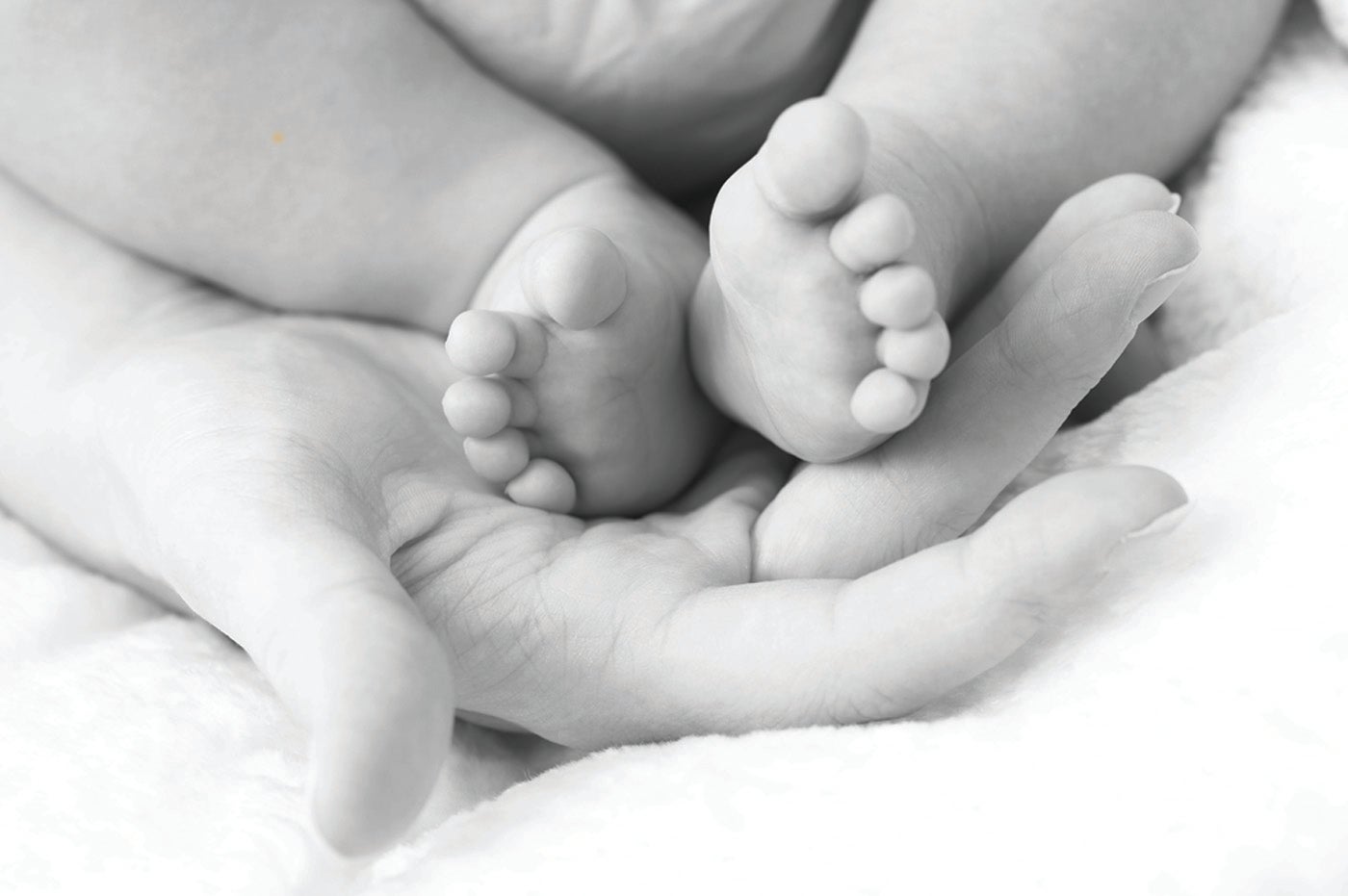Home birth coalition visits Wilmore
Published 4:44 pm Thursday, March 9, 2017
The Kentucky Home Birth Coalition — a consumer-led grass-roots organization working to license Certified Professional Midwives (CPM) in Kentucky — recently paid a visit to Wilmore.
The coalition has hosted a series of discussions regarding midwife advocacy across Kentucky. They have traveled from Paducah to Pikeville, and now to the Wilmore Family Center to discuss the importance of birth choice and quality of midwife care in Kentucky.
“Being in a familiar setting without a lot of intervention can be really great to not disturb the natural birthing process,” said Mary DeLodder, volunteer leader of the Kentucky Home Birth Coalition.
On Monday, Feb. 20, the group stopped in Wilmore to discuss their ultimate goals to ensure the health and well-being of Kentucky families who choose out-of-hospital birth, to expand access to quality maternity care provided by CPMs and to protect the rights of those who wish to choose where their baby is born and who helps with the delivery process.
“We’re always happy to provide a platform for someone who wishes to speak about families,” said Tara Hall, director of the Wilmore Family Center. “More and more folks are going to nurse midwives in hospitals.”
In Kentucky, the percentages of home births have grown from 0.64 percent in 2004 to 0.90 percent in 2009, according to The Kentucky Home Birth Coalition. It is reported that 500 babies are born at home in the state each year.
In 2015, there were 10 out-of-hospital births in Jessamine County, according to information based on birth certificates provided to The Kentucky Home Birth Coalition from the Office of Vital Statistics.
Families are choosing to do home births for various religious, ideological, cultural and economic reasons.
DeLodder said there are many benefits to home birth, including lower costs, less travel and fewer interruptions from the comfort of home.
“It’s not for everybody,” she said. “But for a lot of people, it is a really good choice.”
Some, including Abbie Gibitz, owner of Joyful Birth in Wilmore, feel home births provide a more personal experience.
“I think that people need to know it’s a really good option,” Gibitz said. “It’s not crazy.”
Gibitz, a mother of two, originally planned to give birth to her first child in a hospital, but after a few prenatal appointments, she decided she wanted more options.
She contacted a local midwife, who assisted her in both of her at-home-births.
“I could tell she was going to journey through my pregnancy with me,” Gibitz said.
By her second child, Gibitz had become a doula — a nonmedical person who assists a person and spouse before, during, or after childbirth, at home and in a hospital setting. She was certified four years ago by DONA International — a nonprofit organization that certified doulas across the country.
Though Gibitz said she had a great experience with both of her home births, it might not be for everyone.
“It’s something that you have to feel really good about,” she said.
When a family decides to do a home birth, they have to decide if they want to do it on their own, or with a professional.
“Most people want to have someone who is trained with them, so they search for a midwife,” DeLodder said.
There are two types of midwives. A nurse midwife can attend home births, but they are mostly trained for a hospital setting.
DeLodder said there are only four nurse midwives in the entire state who do home births.
Most home births are attended by Certified Professional Midwives — midwives who do not have a nursing degree but are trained in out-of-hospital midwifery care.
Families who choose CPMs tend to have lower rates of c-sections, unnecessary interventions, birth trauma and they have higher breastfeeding rates, according to The Kentucky Home Birth Coalition.
The CPM credential was created and issued in 1994 by the North American Registry of Midwives (NARM).
CPMs receive a competency-based education — education based on skill level rather than on hours in a classroom. They must prove they are highly achieving in midwifery and related subjects, have a largely documented number of supervised clinical experiences in an out-of-hospital setting and pass a seven hour written exam as well as a hands-on skills assessment, according to The Kentucky Home Birth Coalition.
During an out-of-hospital birth, the midwives perform primary maternity care, holistic-physical, emotional and psychological support.
“It’s full comprehensive maternity care,” DeLodder said.
Though bigger procedures such as ultrasounds would need to be performed in a hospital, a CMP can bring equipment such as oxygen or a doppler that will monitor a baby’s heartbeat.
A CMP can be hard to find in Kentucky because, technically, it’s illegal for them to practice in the state because they do not have a permit or a license.
“You almost have to know somebody who knows somebody,” DeLodder said.
The Cabinet for Health and Family Services used to give permits to midwives, but they have not done so since the 1970s. The practice itself, other than nurse midwives, has become a bit underground, DeLodder said.
There are 31 other states allowing CPMs to practice legally, the most recent one being Michigan at the end of 2016.
“Over the past four decades, there have been efforts to change the midwife law in Kentucky,” DeLodder said.
In 2013 Senator Tom Buford (R) of District 22 first introduced The Kentucky Home Birth Coalition’s bill to the Senate, but it did not get a hearing. Buford introduced the bill again in 2016. Though it passed through the Health and Welfare committee with favorable results, it died in the next committee.
This year, the bill was sponsored again, this time in both chambers. Senate Bill 105 — sponsored by Buford — and House Bill 148 — sponsored by Representative Russell Webber (R), of House District 26 — both call for similar action.
“We had an opportunity in this session to start a dialog for regulations, rules, and safety,” Buford said.
The bills — a hot topic during the legislative session on Tuesday, Feb. 21 — would create new sections of KRS Chapter 309 to establish licensing for midwifery, terms and definitions, the scope of practice for a licensed midwife and it would require informed consent and disclosures for practice.
The bills would also establish the Kentucky Board of Midwifery, create a membership for that board, set terms and grant authority and duties for those members.
Once created, the board would be allowed to reprimand, deny, limit, revoke, probate, or suspend licenses of midwives.
“They offer a pathway for midwives to practice legally,” DeLodder said. “They would create an oversight body for midwives, and it would integrate midwives into the existing maternity care community.”
The bills would also allow midwives to access and carry certain equipment and medication that they have difficulty accessing now, as well as making it easier for them to access tests and ultrasounds.
SB105 was introduced Jan. 7, and House Bill 148 was introduced to the house on Jan. 06.
Buford said the bills and midwives for out-of-hospital births have met the most resistance from hospitals.
“I would have thought the hospitals would want to engage with them and come up with some rules,” Buford said.
He said he believes midwives came out just fine in the end because now they can continue to assist in out-of-hospital births unregulated, and thanks to recent media attention, midwifery and home births have been promoted.
Buford said he doubts the two bills will come back up again during this session, and for the most part, it appears nothing will be done with them this year.
If the bills are not passed for 2017, DeLodder said they will try again next year.
“We’re committed until we get something passed,” she said.
As of March 9, SB105 remained in the Senate and HB148 remained in the house.






